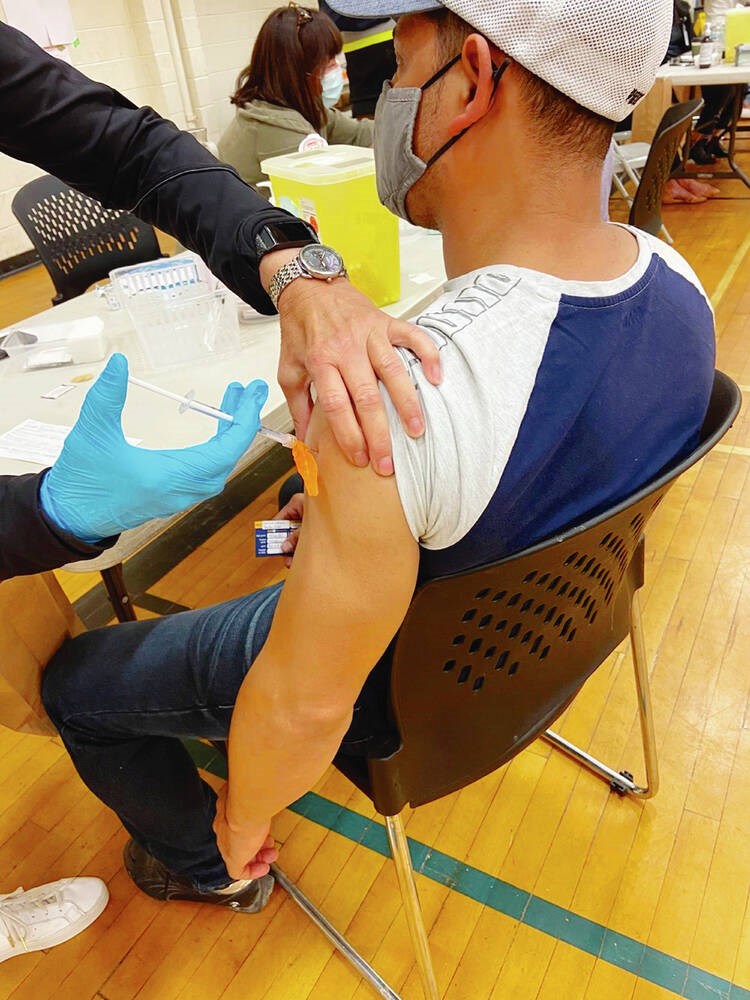A B.C. public health order requiring residents to show proof of vaccination is raising “grave concerns” it will further exclude several marginalized populations.
That’s according to 25 organizations that advocate for civil liberties, just treatment for drug users, and undocumented and disabled British Columbians.
In a joint letter addressed to provincial health officer Dr. Bonnie Henry and Health Minister Adrian Dix, the groups say the vaccine passport system will shut out thousands of already vaccinated people from public life because they don’t have proper identification, access to a smartphone or legal immigration status.
“We’ve had more than 2,000 people come to our vaccination clinics,” said Ingrid Mendez, executive director of Watari Counselling and Support Services Society, a community group that works with migrant workers and other marginalized people in Vancouver.
“Many of them are coming to us: ‘What am I going to do. How am I going to access this vaccine card?’ People are getting stressed because of this.”
Last week, the B.C. government announced it would be launching a vaccine passport system that would bar unvaccinated British Columbians entry to non-essential places, such as movie theatres, concert and sports venues, gyms and restaurants. Anyone entering such venues will be required to show proof they have received at least one dose of a COVID-19 vaccine by Sept. 13 and full vaccination status by Oct. 24.
In an email to Glacier Media, a Ministry of Health spokesperson said the B.C. government would share details on how people can access documentation ahead of the Sept. 13 deadline. “The province is working to ensure vulnerable populations, like people experiencing homelessness or those who may struggle to access computers, have options when it comes to accessing their proof of vaccination,” the spokesperson said.
The “proof of vaccination” plan, rolled out to protect people from a rising number of COVID-19 cases, appears to be driving the unvaccinated to clinics.
Mendez said that goes for undocumented people as well. But unlike many British Columbians, Mendez said there are more than 10,000 people in Metro Vancouver whose immigration status prevents them from proving they have been vaccinated.
For Adriana, a 36-year-old mother of two in Vancouver, the prospect of not entering businesses or community centres threatens to throw her life back into seclusion. Adriana said she fled to Canada from Mexico four years ago after someone tried to kill her and her husband. (Glacier Media is not publishing the woman’s last name because she fears deportation).
Since arriving in Canada, the husband has worked in construction, earning enough money for the family to get by. But without immigration status, they don’t have access to medical insurance and every trip to the doctor threatens to cost a fortune.
During the pandemic, Adriana said she has spent most days alone with her children, isolated from friends and her family back in Mexico. So when Watari offered to get the couple vaccinated, they jumped at the chance.
Since receiving their second dose in July, life has opened up — until she learned there would be a proof-of-vaccination requirement. “We won’t be able to enter a community centre, enter a restaurant,” she said. “I’m frustrated. I’m worried they are going to ask my husband for proof at work.”
Sweeping vaccine passport policies, however well- intentioned, “can have the effect of forcing people into isolation, cutting off their lines of resources, and making their lives even more dangerous during a pandemic,” the letter says.
Getting a vaccine passport is also a concern for about 9,000 temporary foreign agricultural workers in B.C., many of whom have trouble accessing the Medical Services Plan, the gateway to obtaining digital or paper proof of vaccination.
“Agricultural migrant workers who come here and grow the food we eat. Many are not enrolled with MSP,” said Mendez.
The 25 organizations are calling on the B.C. government to close several gaps before the vaccine passport program comes into effect Sept. 13. That would mean stepping up supports to help register low-income people without a government ID as well as drug users who rely on access to community support services but could be barred from them under the new system.



